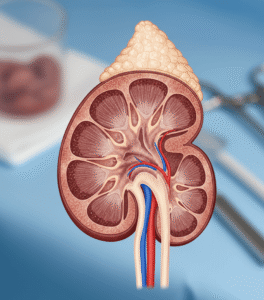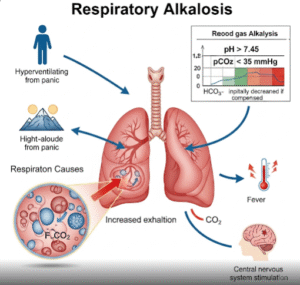Overview
Diabetes is a chronic metabolic disorder characterized by high blood sugar levels. In Korea, diabetes prevalence has been steadily rising due to urbanization, dietary changes, and sedentary lifestyles. Early diagnosis and management are essential to prevent complications such as cardiovascular disease, kidney failure, and neuropathy.
What is Diabetes?
Diabetes occurs when the body cannot properly produce or use insulin, the hormone responsible for regulating blood sugar. It includes Type 1 diabetes, Type 2 diabetes, gestational diabetes, and other specific types. Type 2 diabetes is the most common form among adults in Korea.
Symptoms
- Increased thirst and frequent urination
- Excessive hunger
- Fatigue or weakness
- Blurred vision
- Slow-healing wounds
- Unexplained weight loss (more common in Type 1)
- Tingling or numbness in hands and feet (neuropathy)
Causes
- Type 1 diabetes: autoimmune destruction of insulin-producing pancreatic beta cells
- Type 2 diabetes: insulin resistance due to genetics, obesity, and lifestyle factors
- Gestational diabetes: hormonal changes during pregnancy
- Other causes: pancreatic disease, genetic syndromes, or medications
Risk Factors
- Obesity or overweight
- Sedentary lifestyle
- Family history of diabetes
- High blood pressure and high cholesterol
- Age over 40 (Type 2 diabetes more common in adults)
- Pregnancy-related risk factors (gestational diabetes)
Complications
- Cardiovascular disease (heart attack, stroke)
- Kidney disease (diabetic nephropathy)
- Nerve damage (diabetic neuropathy)
- Eye complications (retinopathy, cataracts)
- Foot ulcers and infections
- Increased risk of infections
Prevention
- Maintain a healthy weight through diet and exercise
- Regular physical activity
- Balanced diet rich in fiber and low in refined sugars
- Routine screening for blood sugar levels, especially in high-risk individuals
- Manage blood pressure and cholesterol
Treatment Options in Korea
- Diagnosis
- Fasting blood glucose, HbA1c, oral glucose tolerance tests
- Regular monitoring of blood sugar levels
- Medical Treatments
- Lifestyle modifications: diet, exercise, weight management
- Oral medications for Type 2 diabetes (metformin, sulfonylureas, DPP-4 inhibitors)
- Insulin therapy for Type 1 diabetes and some Type 2 cases
- Management of comorbid conditions (hypertension, dyslipidemia)
- Rehabilitation & Support
- Diabetes education programs
- Nutrition counseling
- Blood sugar self-monitoring training
- Support groups for lifestyle adherence













